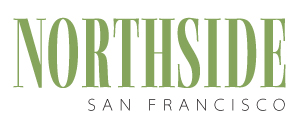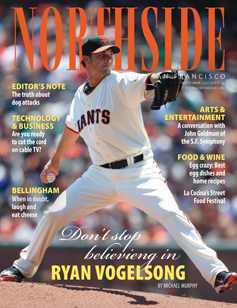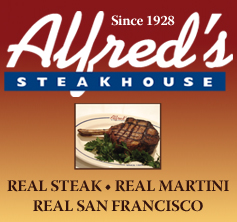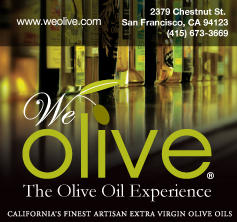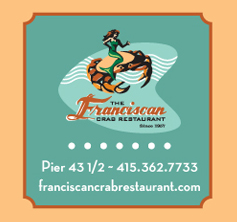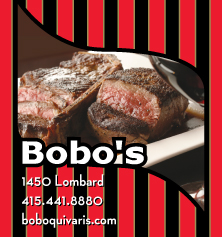Publisher's Note
Crossing the blurry line of food criticism: There is no such thing as a free lunch
Crossing the blurry line of food criticism: There is no such thing as a free lunch
The popularity of The Food Network and cooking shows like Bravo television’s Top Chef have elevated the craft of professional cooking to glamorous new heights, though our cover story on chef Ryan Scott (a former Top Chef contestant himself) should dispel that myth for at least a few folks considering an application to culinary school. In reality, the world of professional cooking involves long, grueling hours; backbreaking work; little money for a very long time (and sometimes not ever); stiff competition; and a level of dedication that few culinary school graduates have the guts for. The unemployment line is littered with disillusioned trust-fund babies who spent $40,000 of their parents’ money to become the next Bobby Flay, and one week on the line of a real restaurant kitchen before they decided it was too hard and moved on to their next potential career.
As if being a chef wasn’t hard enough, the Wild, Wild Web has complicated things even further. In the good old days, restaurants only had to worry about a few food critics from magazines and newspapers – now there’s a veritable minefield of professionals, semiprofessionals, wannabes, and self-proclaimed food critics writing blogs, Yelp reviews, e-letters, and e-zines. Are some of these people good food writers? Yes. In fact, some are professionals who started in print and moved onto the Internet because it’s a cheap, easy way to reach a large audience (cheaper than running a magazine, trust me on that one).
Yelpers, on the other hand, are a bit like army ants: if there’s one, you can squash it, but if there are thousands, they can bring down an antelope. Yelpers have also gotten quite brazen: a waitress told me a story about a group of Twenty Somethings seated in her section who didn’t think she was being attentive enough. One of the guys whipped out his iPhone and said, “I’m writing a Yelp review about you right now!” The owner of a café near my house has a sign with Yelp’s logo in the ubiquitous red circle with a line through it; underneath it says, “Yelpers not welcome.” He explained that too many people had come into his establishment and insisted he give them free food and coffee drinks or they would write a bad review on Yelp.
The problem with Press Comps
It’s not just Yelpers looking for handouts – some food writers regularly take what are known as “press comps,” where a restaurant’s P.R. firm sets them up for lunch or dinner, and the restaurant picks up the tab. I occasionally take press comps as a way to check out a new place, a new menu, or a new chef, and I might write about it for a column like “Newly Notable,” but I never base my Hungry Palate reviews on press comps. For those reviews, I return three to four times (sometimes more) anonymously (I make the reservations under an alias and have a credit card displaying that name) and Northside San Francisco picks up the tab.
Some food writers argue that they don’t have the backing of a publication and therefore can’t afford to pay for all those meals, and that they are perfectly capable of being fair when reviewing an eatery that pays their way. When I asked one of those writers how she overlooks the special service she receives as a VIP, she said she just “watches to see how everyone else is being treated.” Unfortunately, when there’s a VIP in the house, the entire staff knows it, and the people who happen to be dining that night often benefit from it as well. I know, because I’ve been a VIP at press comps and been treated like royalty, as have the tables nearby; but I’ve returned to the same restaurants anonymously and waited 45 minutes for the server to take our drink order (and noted that other tables in my section were having similar problems).
When food writers say that, other than not having to pay the tab, they don’t receive special treatment at a press comp, I know that is untrue. One server told me a story about a VIP who called ahead to let the restaurant know she was coming. The executive chef, who normally wasn’t in that night, got a call at home and zipped down to cook her meal. When the VIP requested a particular glass of wine normally sold only by the bottle, the chef opened the expensive bottle just for her (the wine didn’t suit the dish, she informed the server, and, after all that, she sent it back). Perhaps she doesn’t consider that special treatment, but I do, and I fail to believe that it wouldn’t taint the experience.
If food writers want to take free meals and enjoy a VIP experience, I have no problem with that. What I do have a problem with is not disclosing that fact to their readers. Like the reviews by other food critics for newspapers and magazines, my reviews state that I made multiple visits anonymously and paid my own tab. I believe food writers who take free meals should do the same by adding a disclaimer informing readers that they attended the restaurant as a VIP on the restaurant’s dime.
Schmoozing with Four-Star Chefs
The issue of anonymity is a difficult one in these times of Google image searches and open kitchens, and professional food critics, while they may not announce their visit ahead of time, aren’t always anonymous. Take San Francisco Chronicle food critic Michael Bauer, for instance. In 2005, I attended the Association of Food Journalists conference held at the Ritz-Carlton here in San Francisco. The Chronicle was the main sponsor, and on the first evening they presented an event with some of the City’s best “rising star chefs,” including Michael Mina and Sean O’Brien. All of the chefs in attendance had restaurants Bauer would be reviewing at some point, yet there was Bauer roaming the room with a nametag on the lapel of his crisp Armani suit. A few days later, former Chronicle food writer Kim Severson, then (and now) with the New York Times, interviewed Alice Waters on stage. Bauer, seated in the front row, smiled and waved to Waters, and later they sat together and chatted. Several nights later, the Chronicle hosted an authentic Chinese banquet at Yank Sing restaurant, and a number of big name chefs were in attendance, including Thomas Keller. Who was he seated next to, chummy as could be? Michael Bauer.
The coziness between Bauer and the top chefs was glaring, in part because prior to the AFJ conference, presumably to impress the food writers attending from around the country, Bauer released an article called “The Magnificent Seven,” which detailed his choices for the Bay Area’s four-star restaurants. Both Alice Waters’s Chez Panisse and Thomas Keller’s French Laundry made the list. Gary Danko did not. Of Danko’s eponymous restaurant, Bauer said the food was pristine yet predictable; he then went on to rave about a green bean salad at Chez Panisse (“I’ve never had the sensation of a bean snapping like a rubber band and then gently yielding to tender-cooked flesh that’s both sweet and herbal”) and pasta at the French Laundry (“house-made truffle pappardelle, brown from its exquisite flavoring, glistening in butter and reinforced with perfect paper-thin rounds of more truffles”). Call me crazy, but I think Gary Danko’s glazed oysters with osetra caviar, salsify and lettuce cream, or his crispy farm egg with white polenta, royal trumpet mushrooms, frisée, and pancetta, are a lot less predictable than a green bean salad or truffle pasta topped with more truffles. I don’t think there’s any doubt that Bauer’s close friendships with Waters and Keller (and lack of one with Danko) colored his palate.
If Bauer likes to schmooze with Keller and Waters, and food writers want to announce their VIP arrival and eat and drink on the restaurant’s tab, that’s their prerogative – but at least be honest about it.
E-mail: susan@northsidesf.com
